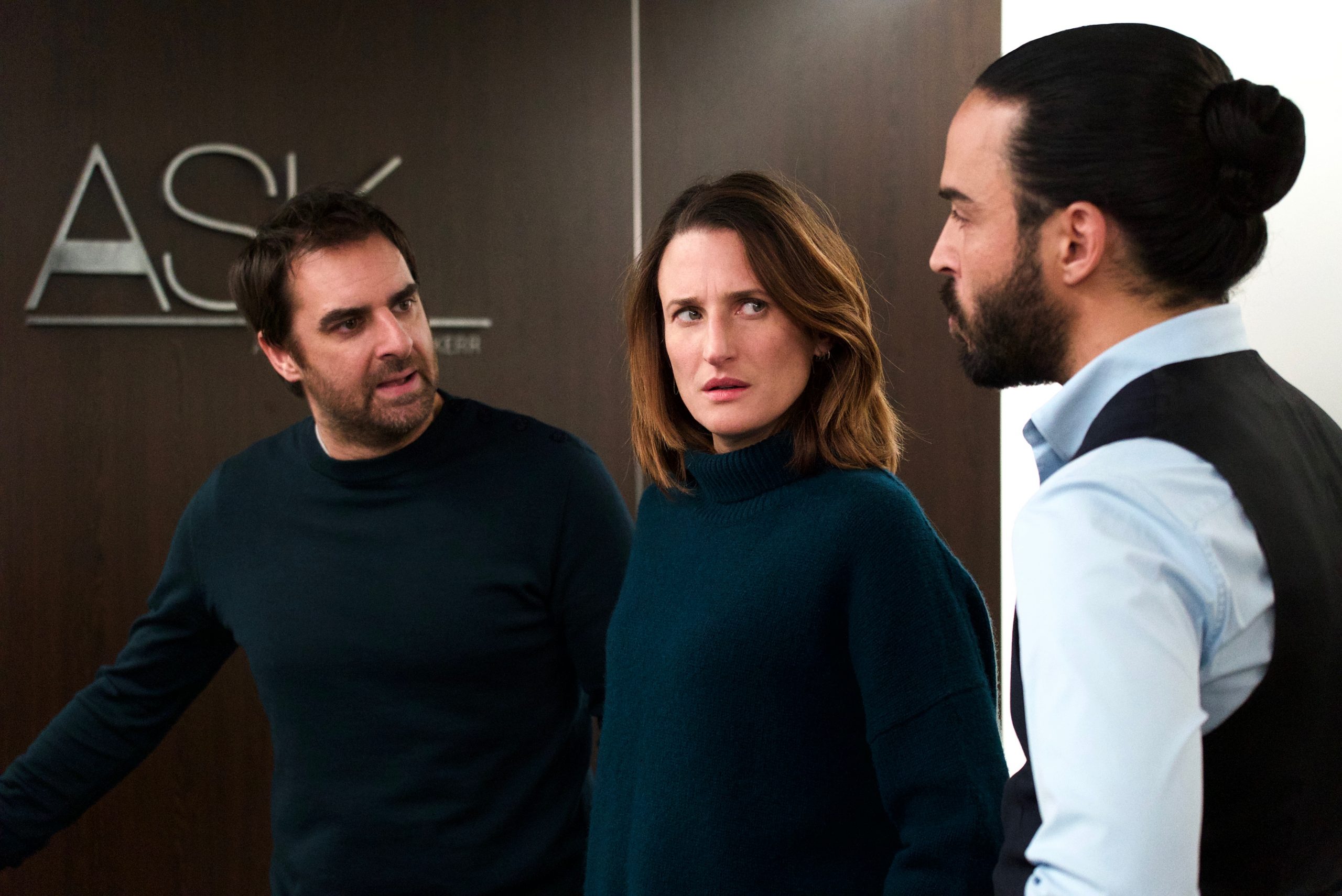
In the first episode of the new series of the brilliant French comedy drama Call My Agent!, the exceptionally chic Charlotte Gainsbourg, playing herself, has an out-of-character and rather cartoonish experience: she slips on a banana peel.
Those familiar with Call My Agent! will have seen it coming. Earlier, Gainsbourg, in order to get out of performing in a friend’s terrible film, lied and told him she had slipped on a banana peel and broken her leg. So when the camera ever so slightly lingers on a fruit peel lying on the floor of the actor’s otherwise spotless apartment, we know what’s going to happen. She slips, falls, and this time, has no need to lie about it.
Call My Agent!, which follows four actors’ agents and their high-profile clients at a fictional Parisian talent agency and this week returns to Netflix for its fourth season, relies on such farce. In fact, when it comes to sophisticated people – and Gainsbourg is a case in point – ending up in embarrassing situations, Call My Agent! excels. The show’s creators Fanny Herrero and Dominique Besnehard understand that an awful lot of ridiculous behaviour happens behind the glamourous scenes we see in film and TV. And acknowledging the absurd elements of the business is, in a roundabout way, the most sincere way of proving how much affection they have for it. More than any other television series I have seen, Call My Agent! loves the industry it depicts.
[See also: The ghosts of Mark Fisher]
The French film business loves the show, too, as the long line of actors willing to star as themselves in the series demonstrates. Before Gainsbourg and the banana peel incident, we saw Isabelle Huppert lose her voice through overwork; Juliette Binoche appear onstage at Cannes slurring her words and with her ostrich-feather dress askew, having fallen down the stairs; and Jean Dujardin taking method acting to the extreme. These actors are willing to play up to the stereotype of the tantrum-prone star on Call My Agent! because they know the show isn’t simply mocking narcissistic, frivolous actors. It treasures cinema and all those who work in it: a little bit of diva behaviour, it suggests, is almost integral to proceedings.
And it is an agent’s job to take their clients seriously, even if doing so means compulsively lying to them, concocting imaginary scenarios to persuade them to sign a contract, or elaborate excuses as to why a disaster has not yet been resolved. The core agents in the show, originally titled Dix pour cent (“Ten per cent” – the amount an agent takes from their clients’ earnings) include Mathias (Thibault de Montalembert), a revered agent whose secret daughter, Camille (Fanny Sidney), appears unannounced in the first episode and quickly makes herself at home at the agency; matriarch Arlette (Liliane Rovère), whose loyal little Jack Russell Jean Gabin has a habit of biting the ankles of those with whom she is displeased; good-hearted Gabriel (Grégory Montel), who eats squirty cream straight from the can when stressed; and formidable Andréa (played by the series’s breakout star Camille Cottin), who has been known to seduce an actress or two.
The banana episode is not a stand-alone incident. Joyfully, much of the humour in the show verges towards slapstick, suggesting that, far from the high-level sophistication stereotypes may have led us to expect from a French drama, this version of Parisian humour isn’t too far off Morecambe and Wise. As well as verbal quips (“She’s going to eat us like sashimi,” junior agent Hervé, played with real sensitivity by Nicolas Maury, says of frightening new agent Élise), many of the laughs rely on physical comedy, finding humour in the very bodiliness of acting.
[See also: Russell T Davies’s It’s a Sin is about the Aids crisis – and much more]
In one episode, actor Franck Dubosc grows increasingly irate with the rude young actor he is playing opposite in a film. As they rehearse a scene in which Dubosc’s character punches his counterpart (they’re acting it as a stunt, with no real contact), the pair mutter insults under their breaths to the other, having to do the scene again and again until Dubosc really does punch the kid – hard. His injury is nothing in comparison to what Andréa experiences on set when a lighting rig falls on her, knocking out her front teeth. Or the damage Noémie suffers to her spine, following her unfortunate collision with a car, driven by Catherine (Philippine Leroy-Beaulieu), who happens to be the wife of Mathias, Noémie’s boss and lover.
Gladly Noémie is out of her back brace for the first episode of the fourth season, an emancipation which leads to some of the best character development of the show. When we first meet her, Noémie is an eccentric, devoted agent’s assistant who is not-so secretly in love with Mathias. Laure Calamy performs the character’s passion and loyalty with brilliant hyperbole, but not without empathy, and so by the time Noémie has left her lowly assistant role behind, her affair with Mathias now an official relationship, she is a beloved heroine.
Over dinner with big-time film producer Igor de Serisy (Stéphane Freiss), Noémie, in a hot-pink blouse, delivers an impassioned speech making the case for a script she and Mathias are counting on, but Igor is growing more unsure about. It’s not the first time she has spoken articulately and persuasively about her love of the artistic landscape in which she works, but it is the first time anyone with power listens and notices her brilliance. Cinema, Call My Agent! says, is the great leveller.
[See also: Lisa Cholodenko’s 1998 High Art is an eerily precise portrayal of stone-broke bohemian city living]





